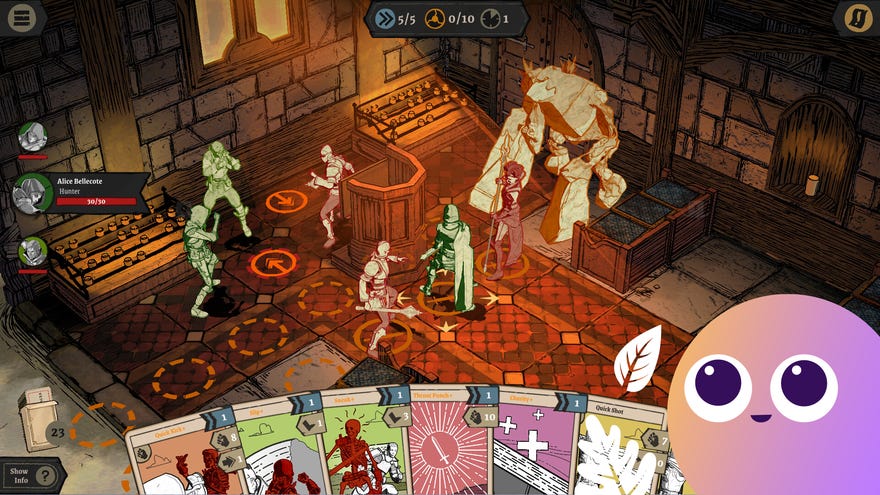HomeNewsKnights in Tight Spaces
Knights In Tight Spaces kicks the Tight Fight formula in the direction of fantasy role-playingNew Steam demo introduces clerics and rogues
New Steam demo introduces clerics and rogues
Image credit:Raw Fury / Rock Paper Shotgun
Image credit:Raw Fury / Rock Paper Shotgun

The existence ofKnights In Tight Spaces, sequel toFights In Tight Spaces, implies the existence of an unknown quantity or perhaps, aninfinityof follow-up games that rhyme with both of those. Frights In Tight Spaces is the obvious horror spin-off. Sleights In Tight Spaces would be an urban pick-pocketing sim. Fights In Trite Spaces is about arguing with people on social media. Ah, you could spend a whole article, indeed, a series of articles, just fleshing out the iterations. Fortunately, Knights In Tight Spaces has a new demo to distract me.
Knights in Tight Spaces - Official Future Games Show Announcement TrailerWatch on YouTube
Knights in Tight Spaces - Official Future Games Show Announcement Trailer

I don’t even need to play the demo to endorse it. For you see, I owe developers Ground Shatter and publishers Raw Fury a write-up from a hands-on way back at GDC 2024. I’ve forgotten a lot of the detail and my notes consist entirely of phrases like “Mites In White Laces = insect high school sports day dramedy????” but the summary is: game good.
The difference is that this time round, you start with a party of character classes, such as archers and mages. Each has the skillset you’d approximately suspect from the name. This boisterously shoves the game a few grid squares in the direction of non-puzzle tacticsRPGs. There’s more opportunity to batter enemies unscientifically, if you think you have the stats for it. But it’s still more of a puzzler than an attritional exchange of blows/fireballs, and the newly party-led approach suits the choice of a medieval fantasy premise.
“Weirdly, the thing that felt most underdeveloped was the setting,” Jai Singh Bains wrote inour review of the first game. “As integral to the game as it is, there’s not really a story”. It feels like they’ve tried to address that. Beyond the battles, you’ll pick paths through an overworld, undertaking primary and secondary quests and clicking through some sparse but colourful dialogue. They’ve also plumped up the art direction - it’s grittier and slashier of texture than the previous game’s spy thriller whitebox, while still offering up a world of sharp outlines and stark colours.